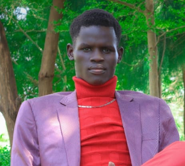In the annals of African political thought, certain remarks capture the cyclic nature of politics, power, and betrayal. One such profound statement came from Kenyan lawyer, human rights activist, and politician, James Orengo, who once warned: “Sometimes revolutions eat their own children… governments eat their own people. This government is going to punish you more than they will punish me, I am telling you. In another one year, you will be crying in my office to come and represent you.”
This statement, layered with foresight, irony, and caution, speaks not only to the Kenyan context in which it was said but also resonates deeply with the political realities unfolding in South Sudan today. It underscores the dangers of political short-termism, the fragility of solidarity among lawmakers, and the tragic pattern where governments turn on their very own, consuming those who once enabled or defended them.
The parliament is a house of law and justice.
Orengo’s metaphor situates Parliament as akin to a court of law—a space where justice is not only dispensed but also symbolically safeguarded. Parliamentarians are meant to act as custodians of public interest, ensuring that the executive branch is held accountable. However, when legislators compromise this responsibility for temporary political gain or personal benefit, they inadvertently endanger both themselves and the very institution they represent.
The recent decision by South Sudan’s National Legislative Assembly to waive the immunity of Hon. Gatwech Lam Puoch—accused of criminal charges after advising young men in Nasir County to embrace dialogue over violence—is a poignant illustration of Orengo’s warning. Instead of shielding a colleague whose actions were framed around peace advocacy, some parliamentarians aligned themselves with the executive narrative, possibly under the lure of political favor or financial inducement.
The danger of short-term political calculations
The essence of Orengo’s statement lies in the idea that short-term gains often come at long-term costs. By allowing the immunity of one of their own to be stripped away, MPs set a precedent that weakens the collective shield of Parliament. Today it is Gatwech Lam Puoch; tomorrow, it could be any of them. Once the protective wall of parliamentary solidarity is breached, individual legislators become vulnerable to manipulation, intimidation, and persecution.
The metaphor of “revolutions eating their own children” captures this perfectly: those who once stood shoulder-to-shoulder in the struggle for liberation or reform often turn against one another when vested interests, power consolidation, or fear dictate political behavior.
The cyclical nature of political punishment
What Orengo foresaw is not merely a rhetorical flourish but a political truth. Governments, particularly those operating in fragile democracies, often turn inward to punish their own. The very officials who applaud or facilitate the persecution of others frequently find themselves next in line. In South Sudan, this cycle is evident in the way security organs and the executive have at times treated even senior figures within their own political fold with suspicion, intimidation, or outright hostility.
By waiving immunity in this case, MPs risk facing the same treatment in the future. They may soon find themselves seeking the protection of the very colleague they once abandoned—a bitter irony that Orengo captures when he says: “In another one year you’ll be crying in my office to come and represent you.”
Justice, dialogue, and the irony of punishment
The tragedy of Hon. Gatwech Lam Puoch’s case lies in the fact that his “crime” was not the incitement of violence but rather the opposite—urging youth in Nasir County to refrain from violence and embrace dialogue. If such acts of peace-building are criminalized, then the very foundation of national reconciliation is undermined.
Punishing leaders who advocate dialogue sends a chilling message: that voices of moderation are unsafe, and that the Parliament itself can be weaponized against its own members. This not only corrodes the rule of law but also distances Parliament from its role as a defender of justice and democratic principles.
Lessons and the way forward
Orengo’s timeless words should serve as a mirror for South Sudanese lawmakers. Several lessons can be drawn:
- Parliamentary solidarity matters
MPs must recognize that protecting one of their own from arbitrary executive overreach is not about defending an individual but about safeguarding the dignity and independence of Parliament itself.
- Short-term gains are costly
Bribery, political favors, or fear-driven decisions may bring temporary comfort, but they erode institutional integrity and expose lawmakers to the very risks they ignore today.
- Justice must remain paramount
When Parliament ceases to serve as a house of justice, it risks becoming a political tool, undermining both democracy and its legitimacy before the people.
- Dialogue should never be criminalized
Leaders who encourage dialogue rather than violence are essential to peacebuilding in fragile societies like South Sudan. Silencing them is counterproductive and dangerous.
Conclusion
James Orengo’s words echo like a prophecy across borders and generations: governments and revolutions, if unchecked, have a way of consuming their own. The South Sudanese Parliament’s recent decision demonstrates how quickly this warning can materialize. If MPs fail to act with foresight, justice, and solidarity, they risk becoming victims of the very system they help sustain.
In the end, both history and time have a way of teaching harsh lessons. Those who favor expediency today may find themselves tomorrow in need of the very justice they denied to others. And when that time comes, it may be too late to undo the damage.
The writer is a South Sudanese student in Kenya and can be reached via kuokmathpiwchuol@gmail.com.
The views expressed in ‘opinion’ articles published by Radio Tamazuj are solely those of the writer. The veracity of any claims made is the responsibility of the author, not Radio Tamazuj.




